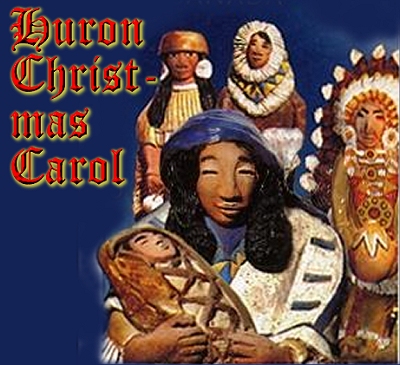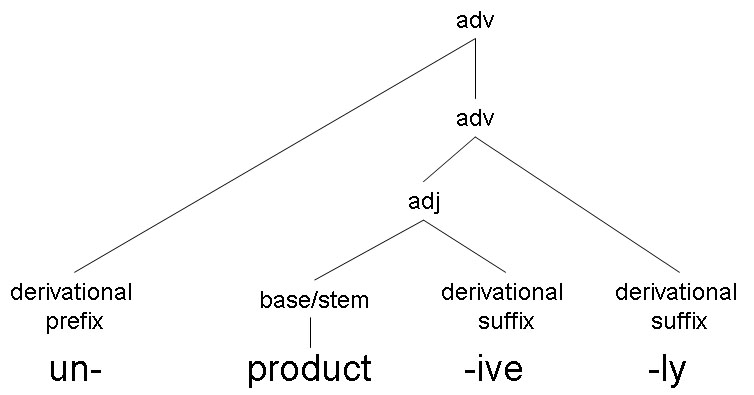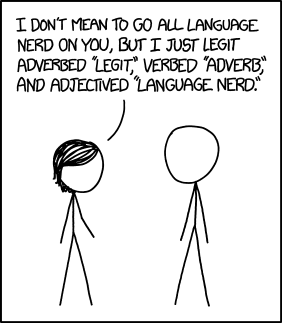Wow!! We raised $140 from last nights seminar!! Thank you all for your support and donations last night!
Thursday, 27 November 2014
Wednesday, 26 November 2014
And that concludes the night...
Thank you to all the people who participated in the Huron Wendat seminar!
A special thanks to Prof. Steckly who came out to support the seminar!
It's starting!!
We are in the Earth Science Building room 4001!
The presentation is starting! You can still make it!
Tuesday, 25 November 2014
1 day and counting!

Tomorrow is...
the Huron Wendat Seminar!!
So come drop into our seminar tomorrow!
Date: Wednesday, November 26, 2014.
Time: From 6 pm - 8 pm
Where: ES4001
Time: From 6 pm - 8 pm
Where: ES4001
- Earth Science Building - 33 Willcocks Street, Toronto, M5S 3B3
This event is FREE. Everyone is welcome! Refreshments will be served;
so eat, drink, mingle, and come learn about Wendat!
so eat, drink, mingle, and come learn about Wendat!
önenh,
Students of LIN458
Monday, 24 November 2014
Lucky you!

Huron Wendat Live Coverage
Can't make it into the Huron Wendat Seminar?
Well, lucky you!
There will be a live coverage of the seminar; this will include pictures of #instafood,
presenters, and just the entire seminar in general.
But! If you can make it to the seminar, we look forward to meeting you!
önenh,
Students of LIN458
The Huron Wendat Carol

A Transcription of the Huron Carol
The Documentation group highlighted one issue within the Huron Carol - and that is, transcriptions of the carol were all over the place! This represents the Documentation group's attempt to create a standard transcription of the Huron Carol.
Girault’s orthography:
Estennialon de tson8e Ies8s ahatonnia
Onna8ate8a d’oki n’on8andask8aentak
Ennonchien sk8atrihotat n’on8andilonrachatha
Aloki onkinnhache eronhialeronnon
Iontonk ontatiande ndio sen tsatonnharonnion
8arie onna8ak8eton ndio sen tsatonnharonnion
Achink ontahonrask8a d’hatirih8annens
Tichion halonniondetha onh8a ahatren
Ondaie te hahahak8a tichion halonniondetha
Tho ichien stahation tethotondi Ies8s
Ahoatatende tichion stanchitea8ennion
Ahalonatorenten iatonk atsion sken
Onne ontahation chiahonalen Ies8s
Ahatichiennonniannon kahachia handialon
Te honannonrank8annion ihontonk oerisen
Te ek8atatennonten ahek8achiendaen
Ti hek8annonronk8annion de son8entenrade.
8toleti sk8annonh8e ichierhe akennonhonstha
Tentative Orthography,
compiled from First Voices, Steckley:
Estenniayon de tsonwe iesous ahatonnia
Onn’ awatewa nd’ oki n’ onyouandaskwaentak
Ennonchien eskwatrihotat n’onyouandiyonrachatha
ayoki onkiennhache eronhiayeronnon
iontonk ontatiande ndio sen tsatonnharonnion
warie onn’ awakweton ndio sen tstatonnharonnion
achienhkontahonraskwa d’ hatirihwannens
tichion sayonniondetha onhwa achia ahatren
ondaie te hahahakwa tichion sayonniondetha
tho ichien st’ ahation tethotondi iesous
ahwatatende tichion stanchitehawennion
asayontorenten ihatonk atsion sken
onne ontahation chiahonayen iesous
ahatichiennonniannon kahachia handiayon
te honannonronkwannion ihotonk werisen
te hekwatatennonten ahekwachiendaen
ti hekwannonronkwannion de sonywentenrände
outoyeti skwannonhwe icherhe akennonhonstha
Who is Skeckley?
John Steckly is a Canadian scholar specializing in Native American studies. He has been a professor at Humber College since 1983. According to the Toronto Star, Steckly is also one of the last Huron Wendat speakers!
If you are interested in how the Documentation group went from Girault's orthography to their tentative one, let me know and that information can be sent to you!
Contributors:
Coco
Daniel
Andrew
önenh,
Students of LIN458
Significance of the Huron Carol

Cultural Significance of the Huron Carol
A History of the Huron Carol
The Huron Carol, or “Jesus Ahatonnia” was written by the French Jesuit Father Jean de Brébeuf in the 1640s. Though the theme is Christian, the birth of Jesus Christ, Brébeuf’s lyrics tries to avoid the use of inappropriate vocabulary. For example, angels are termed ‘sky people’ and the three kings are ‘Elders’.
Although the carol is not representative of the Wendat culture before the mid-seventeenth century, it is described by John Steckly as “a song embedded in the first meeting of European and Aboriginal people.” Steckley speaks of a “Huron girl named Therese” who sang the carol during her illness over Christmas Eve.
Later, Paul Tsawenhohi Picard (1845-1905) who was a chief, rewrote the lyrics. He was strongly influenced by Christian traditions and European vocabulary, such as “devil” instead of “spirit,” and “angels in heaven” as opposed to the sky people.
The most well-known lyrics for The Huron Carol is by Jesse Edgar Middleton (1872-1960). Middleton’s version, published in 1927 as The First Canadian Christmas Carol, begin with
“Twas in the moon of winter time
When all the birds had fled,
That mighty Gitchi Manitou
Sent angel choirs instead.”
Upon first listen, you hear of Gitchi Manitou, a figure not of Wendat or another Iroquoian language but Ojibwe language.
Though Middleton's lyrics are still prominent, there has been a recent upturn in indigenous work using the carol. From people asking for their representations to be performed in Wendat, staying truer to the language and culture, to various native retellings (in Plains Cree and Mi’kmaw), Jesus Ahatonnia has remained a strong feature of Wendat culture and is a good entry point for those looking to learn more about its history.
Contributors:
Coco
Daniel
Andrew
önenh,
Students of LIN458
Where is Huron Spoken?

Where is Huron Wendat Spoken?
Classification:
Huron is a Northern Iroquoian language.
Where is it Spoken?
There are two major settlements:
- Wendake, Quebec
- Wyandotte, Oklahoma

“Census
Profile - Map: Wendake, Indian reserve (Census Subdivision), Quebec.” Statistics Canada. https://www12.statcan.gc.ca/census-recensement/2011/dp-pd/prof/details/page_Map_Carte_Detail.cfm?Lang=E&G=1&Geo1=CSD&Code1=2423802&Geo2=PR&Code2=10&Data=Count&SearchText=&SearchType=Begins&SearchPR=01&B1=All&Custom=&TABID=1&geocode=2423802
A map of Huron Wendat speakers in Wendake, Quebec.
“Wyandotte Tribe of Oklahoma.” Map. Google Maps. Google, 2014. https://www.google.ca/maps/place/Wyandotte+Tribe+of+Oklahoma/@37.4841211,-94.9180659,7z/data=!4m2!3m1!1s0x0000000000000000:0xbbd9d95e40066c1e
A map of Huron Wendat speakers in Wyandotte, Oklahoma.
Kendra
Lisa
Kari
Julia
Saranya
önenh,
Students of LIN458
Language Status of Huron Wendat
Expanded Graded Intergenerational Disruption Scale
Level
|
Label
|
Description
|
|||
0
|
International
|
The
language is widely used between nations in trade, knowledge exchange, and
international policy.
|
|||
1
|
National
|
The
language is used in education, work, mass media, and government at the
national level.
|
|||
2
|
Provincial
|
The
language is used in education, work, mass media, and government within major
administrative subdivisions of a nation.
|
|||
3
|
Wider
Communication
|
The
language is used in work and mass media without official status to transcend
language differences across a region.
|
|||
4
|
Educational
|
The
language is in vigorous use, with standardization and literature being
sustained through a widespread system of institutionally supported education.
|
|||
5
|
Developing
|
The language
is in vigorous use, with literature in a standardized form being used by some
though this is not yet widespread or sustainable.
|
|||
6a
|
Vigorous
|
The
language is used for face-to-face communication by all generations and the
situation is sustainable.
|
|||
6b
|
Threatened
|
The
language is used for face-to-face communication within all generations, but
it is losing users.
|
|||
7
|
Shifting
|
The
child-bearing generation can use the language among themselves, but it is not
being transmitted to children.
|
|||
8a
|
Moribund
|
The only
remaining active users of the language are members of the grandparent
generation and older.
|
|||
8b
|
Nearly
Extinct
|
The
only remaining users of the language are members of the grandparent
generation or older who have little opportunity to use the language.
|
|||
9
|
Dormant
|
The
language serves as a reminder of heritage identity for an ethnic community,
but no one has more than symbolic proficiency.
|
|||
10
|
Extinct
|
The
language is no longer used and no one retains a sense of ethnic identity
associated with the language.
|
|||
Dallas: SIL International http://www.ethnologue.com/language/abc
So what level is Huron Wendat?
According to EGIDS, Huron Wendat is Dormant.
Contributors:
Kendra
Lisa
Kari
Julia
Saranya
Kendra
Lisa
Kari
Julia
Saranya
önenh,
Students of LIN458
2 days and counting!

2 days until the Huron Wendat
Language Seminar!
Date: Wednesday, November 26, 2014.
Time: From 6 pm - 8 pm
Where: ES4001
Time: From 6 pm - 8 pm
Where: ES4001
- Earth Science Building - 33 Willcocks Street, Toronto, M5S 3B3
This event is FREE. Everyone is welcome! Refreshments will be served;
so eat, drink, mingle, and come learn about Wendat!
so eat, drink, mingle, and come learn about Wendat!
önenh,
Students of LIN458
Thursday, 20 November 2014
References
References
As students, of course we have to include references. So here they are below:
"Huron-Wendat." Huron Wendat - Quebec. July 28,
2014. Accessed November 2, 2014. http://www.huron-wendat.qc.ca/index-en.html.
"Huron-Wendat Virtual
Museum." Le Troc Des Idées / Trading Ideas.
December 7, 2011. Accessed November 2, 2014. http://www.letrocdesidees.ca/.
"Preserving and
Promoting American Indian Languages." Native American Language Net. March 1, 1998. Accessed November 2, 2014. http://www.native-languages.org/.
Becker, Mary Druke. “Iroquois and Iroquoian in Canada.” In Native Peoples: The Canadian Experience 2nd ed., edited by , R. Bruce Morrison, and C. Roderick Wilson, 323-346. Toronto: Oxford University Press, 2995.
C.A. Buser. “101 Names.” Wyandotte Nation: Preserving the future of our past! Last accessed November 10, 2014.
http://www.wyandotte-nation.org/culture/history/general-history/names-given/
George Paré, “Pierre Potier, S.J.” CCHA, Report, 18 (1950), 47–57
Goddard, johhn. “The World’s Last Huron-Language Speaker Is Anthropologist John Steckley Who Teaches at Humber College.” The Toronto Star, December 24, 2007. http://www.thestar.com/news/ontario/2007/12/24/scholar_sole_speaker_of_huron_language.html.
Heidenreich, Conrad. Huronia: A History and Geography of the Huron Indians 1600-1650. Toronto: McClelland and Stewart, 1971.
Huron, n. OED: Oxford English Dictionary:The definitive record of the English Language. Accessed November 10, 2014.
http://www.oed.com.myaccess.library.utoronto.ca/view/Entry/89583?redirectedFrom=huron
March 1, 2009.
Lagarde, Pierrette L. Le
Verbe Huron: Étude Morphologique D'après Une Description Grammaticale De La
Seconde Moitié Du XVIIe Siècle. Saint Sauveur-des-Monts, Québec: P.L. Lagarde, 1980.
Lukaniec, Megan. "Guide De Prononciation." FirstVoices: Huron-wendat. September 16, 2010.
Steckley, John. Words of the Huron. Waterloo, Ont.: Wilfrid Laurier University Press, 2007.
René Latourelle, “BRÉBEUF, JEAN DE (Échon),” in EN:UNDEF:public_citation_publication, vol. 1, University of Toronto/Université Laval, 2003–, accessed November 24, 2014, http://www.biographi.ca/en/bio/brebeuf_jean_de_1E.html.
Robert Toupin, “POTIER, PIERRE-PHILIPPE,” in EN:UNDEF:public_citation_publication, vol. 4, University of Toronto/Université Laval, 2003–, accessed November 24, 2014, http://www.biographi.ca/en/bio/Steckley, John. Words of the Huron. Waterloo, Ont.: Wilfrid Laurier University Press, 2007.
Steckley, John. The
First French-Huron Dictionary by Father Jean De Brébeuf and His Jesuit Brethren. Lewiston: Edwin Mellen Press, 2010.
Steckley, John.
"Unpublished Materials." email correspondence, October 30, 2014.
Steckley,
John. 2014. "Huron Carol: A Canadian Cultural Chameleon." British Journal of Canadian Studies 27
(1): 55-74. doi:10.1353/bjs.2014.0030.
Thwaites,
Reuben G. 1959. The Jesuit Relations and
Allied Documents. New York: Pageant Book Company.
teonk8ennonx8achend

Morpho-what? No, Morphology!
What is morphology?
- Morphology is the study of meaningful units in language
Here is an example of morphology in Wendat:
teonk8ennonx8achend
Now that's a long word; let's break it down!
t - e - on - k - 8enn - onx8a - ch - e - nd
t - not
e - will/would
on - they
k - indicates that this action was did by themselves; but not too much of an indication of themselves
8enn - load of wood
onx8a - to put into a fire
ch - indicates some kind of movement
e - indicates intent or a prediction
nd - past tense
(Steckley, 2010, 11)
(Steckley, 165 ; Lagarde, 142)
I know your curious now, so what DOES this sentence mean?!
It means "They would not have put wood in the fire".
önenh,
Students of LIN458
Students of LIN458
Contributors:
Sarah
Michael
Joseph
Asma
Chen
What does Wendat sound like?
2005.pdf/page1-593px-IPA_chart_(C)2005.pdf.jpg)
So what does Wendat sound like? Wendat has:
- 10 consonants (like d, f, t, k, p)
- 6 vowels (like, a, e, i, o , u)
- The diacritic / ¨/: marks a sound separated into two syllables or a sound make with the preceding vowel
- The diacritic / ‘/: marks pre- or post-aspiration or glottalization
The Glottal Stop /Ɂ/
- What makes this sound weird to us is because it can occur anywhere in a word; typically in English, this is not that case.
- This can be found in the IPA chart given below!
Nasal
+ Stop /nd/
- This sound does not exist in the English language
- Try to connect a /n/ with a /d/ and you will get that /nd/ sound!
Very Voiceless /h/
- This is described as very airy sound made with very narrow closures in the back are of your mouth. If it helps, the IPA chart demonstrates what a voiceless /h/ sounds like as well.
(Words of
the Wendat language - http://www.letrocdesidees.ca/
)
(Lagarde 35-55)
If you are super confused by the linguistic-y terms, this link will take you to an IPA chart where you can actually hear these sounds!
http://web.uvic.ca/ling/resources/ipa/charts/IPAlab/IPAlab.htm
If you are still confused, the First Nations website also does an awesome job of presenting audio files for their native languages.
http://www.firstvoices.com/en/Huronne-Wendat-EN/welcome
önenh,
Students of LIN458
Students of LIN458
Contributors:
Sarah
Michael
Joseph
Asma
Chen
Family Trees!
Kopris, Craig. (2009). Iroquoian Family Tree. Presented at Wendat Language
Symposium, Wendake, Québec.
Huron Wendat Family Tree
What is a family tree? And no, I don't mean the Ancestry family tree. I'm talking about the family tree used for illustrating language families!
A language family tree demonstrates the familial relations between several languages. What is important to remember is that these languages come from one common proto language - or in other words, all these languages come from one common language. Using familial terms, this one language is common would be perceived as the head of the family.
What the chart above illustrates is that Wendat is an Iroquoian language. This then separated into southern and northern languages. From northern languages, the languages are then separated int lake and coastal; and it is from there that Wendat is found!
This chart also highlights the relationship between other Iroquoian Languages such as Cherokee, Mohawk, or Seneca.
önenh,
Students of LIN458
önenh,
Students of LIN458
Contributors:
Sarah
Michael
Joseph
Asma
Chen
5 days and counting

How are you doing?
ahskennon’nia iye’s
I'm doing well.
Do you know why? Because...
There are 5 more days until the Huron
Wendat Language Seminar!
Of course with the cold weather here in Toronto, you are totally welcome to say:
te’wayakwahstih
I'm not doing well.
This information comes from the First Nations website: http://www.firstvoices.com/en/Huronne-Wendat-EN/phrase-book/ad77060b9b7e6efd/Greetings-Goodbyes-Thanks
Some information about the seminar have been given below if you are interested in coming (Come!).
Date: Wednesday, November 26, 2014.
Time: From 6 pm - 8 pm
Where: ES4001
- Earth Science Building - 33 Willcocks Street, Toronto, M5S 3B3
This event is FREE. Everyone is welcome! Refreshments will be served;
so eat, drink, mingle, and come learn about Wendat!
so eat, drink, mingle, and come learn about Wendat!
Students of LIN458
Tuesday, 18 November 2014
7 days and counting
7 days until the Huron Wendat
language seminar!
Once again, the event is free! Everyone is welcome; refreshments and knowledge will be served.
Haha, like what I did there? ;)
önenh,
Students of LIN458
Students of LIN458
Monday, 10 November 2014
Wendat Day!

We have finally worked out the kinks of our seminar; so here are the details!
Date: Wednesday, November 26, 2014.
Time: From 6 pm - 8 pm
Where: ES4001
- Earth Science Building - 33 Willcocks Street, Toronto, M5S 3B3
This event is FREE. Everyone is welcome! Refreshments will be served;
so eat, drink, mingle, and come learn about Wendat!
so eat, drink, mingle, and come learn about Wendat!
önenh,
Students of LIN458
Students of LIN458
Wednesday, 5 November 2014
A Glimpse into Wendat
A History in Wendat
Where is Wendat spoken?
- Northeast Oklahoma
- Wyandotte (Wyandotte Nation)
- Quebec
- Wendake communities (Huron-Wendat Nation)
A Timeline:
17th century: Huron-Wendat Confederacy is made up of 5 tribes
- Mid-17th century saw dramatic decrease in Huron population as result of infectious disease brought by contact with European settlers
- Alliance with French based on fur trade
1648-1649: the Iroquois Confederacy defeated and dispersed the Wendat
- During these wars about half the Wendat population was destroyed
Contributors:
Kari
Kendra
Lisa
Saranya
önenh,
Students of LIN458
Students of LIN458
Calling all language nerds!

LANGUAGE NERDS ASSEMBLE.
We will be having a seminar on the Huron Wendat language at the end of the month!
Who?
- The 2014 class of LIN458 will be hosting this event
What?
- Seminar on the Huron Wendat language. The three main topics include vitality sketch, grammar, and documentation.
Where?
- University of Toronto St. George campus; details will be released soon!
When?
- November 26 (Wednesday), 2014 from 6 pm to 8 pm
Why?
- We're language nerds, do we need a reason?
We'll be expecting you!
önenh,
Students of LIN458
Students of LIN458
ndio!

ndio!
How do you say 'thank you' in Huron?
önenh!
If you would like more information on greetings in the Huron language, take a look at this link!
http://www.firstvoices.com/en/Huronne-Wendat-EN/phrase-book/ad77060b9b7e6efd/Greetings-Goodbyes-Thanks
önenh,
Students of LIN458
Subscribe to:
Posts (Atom)







